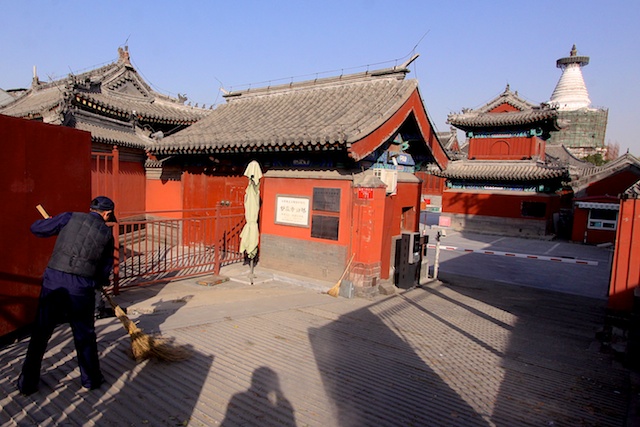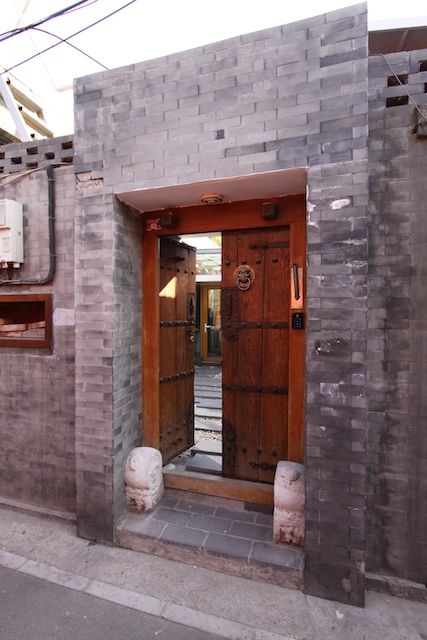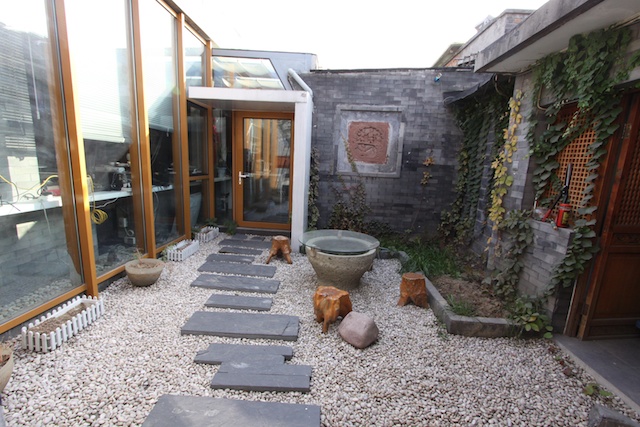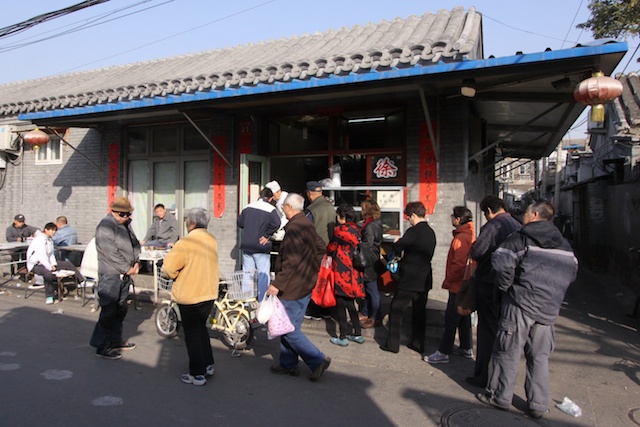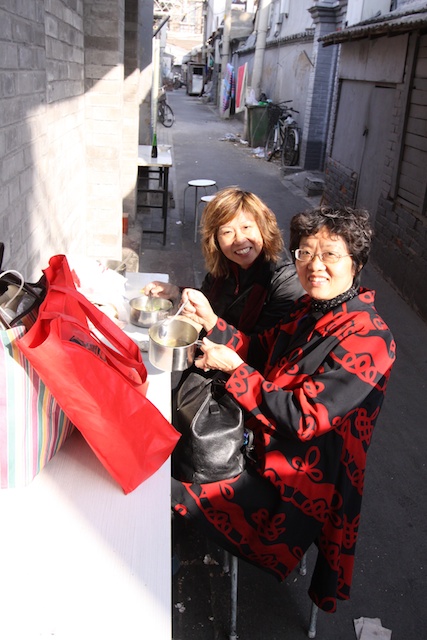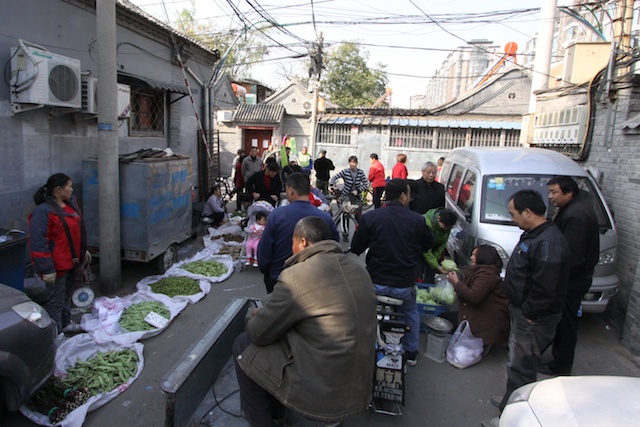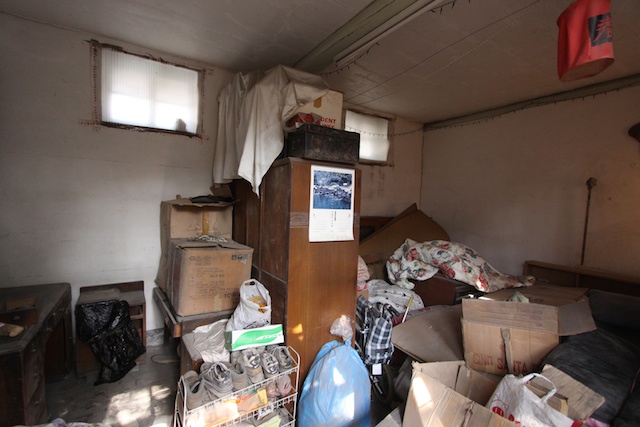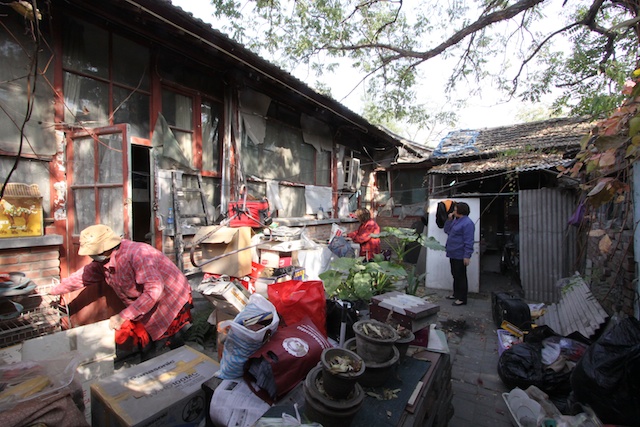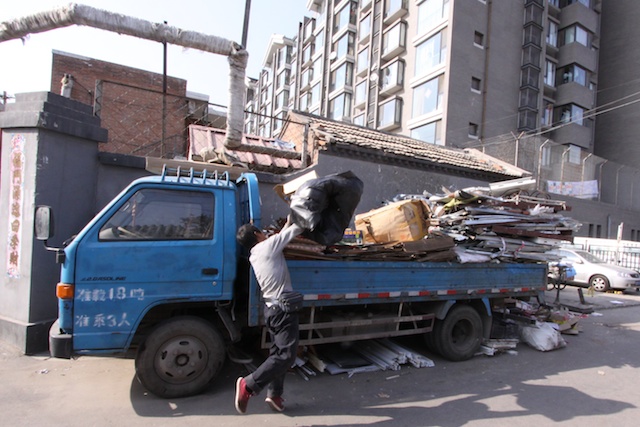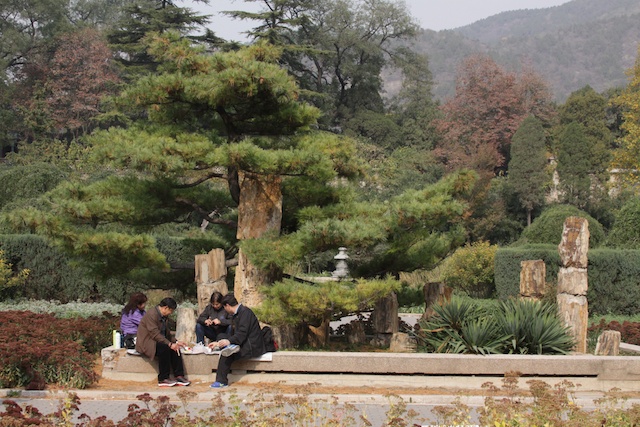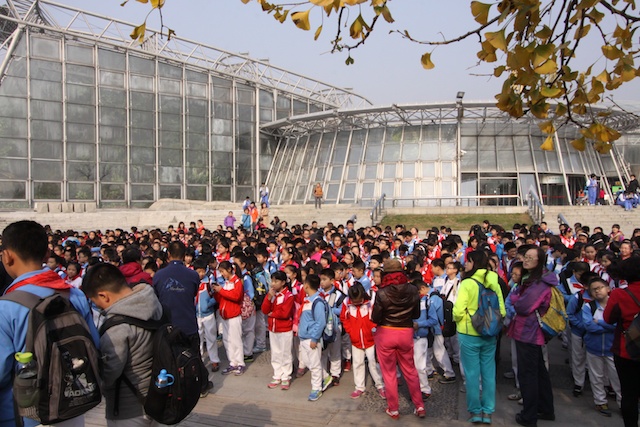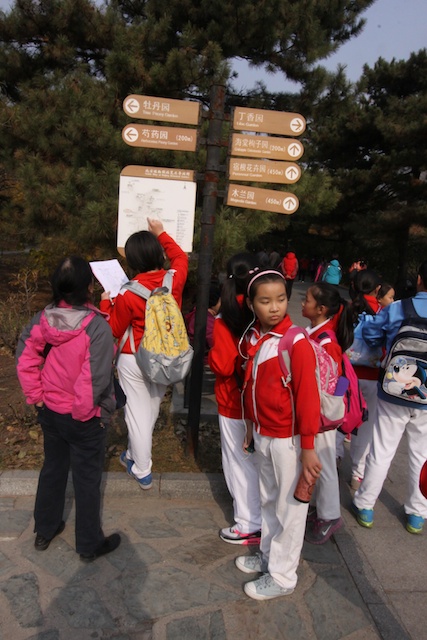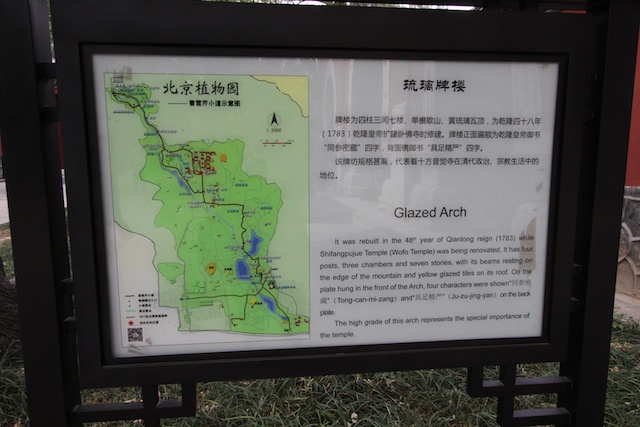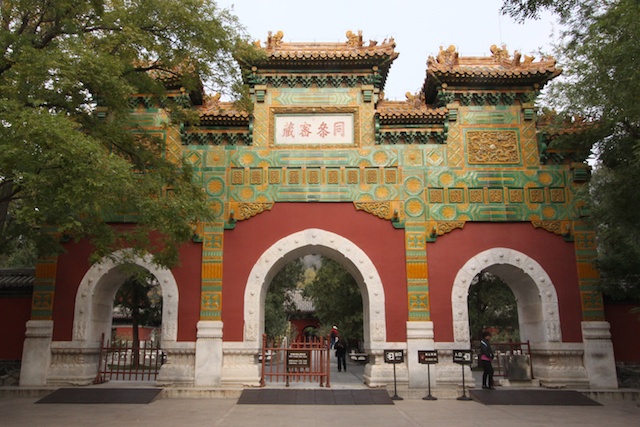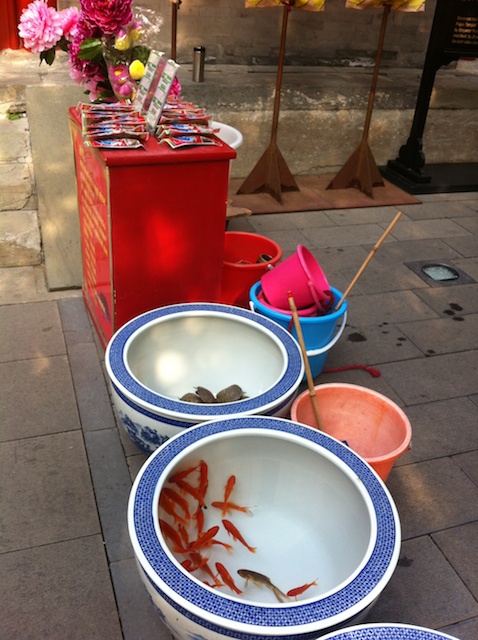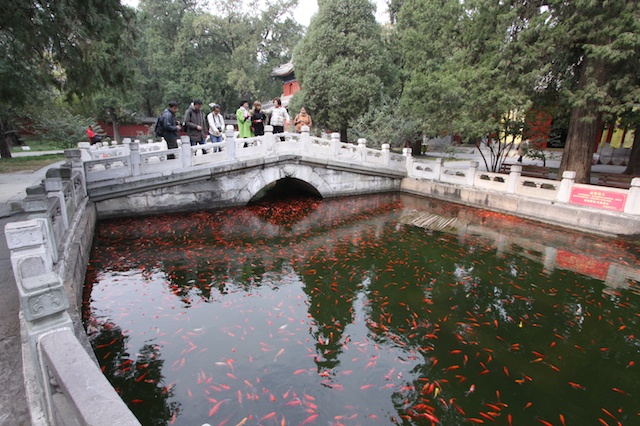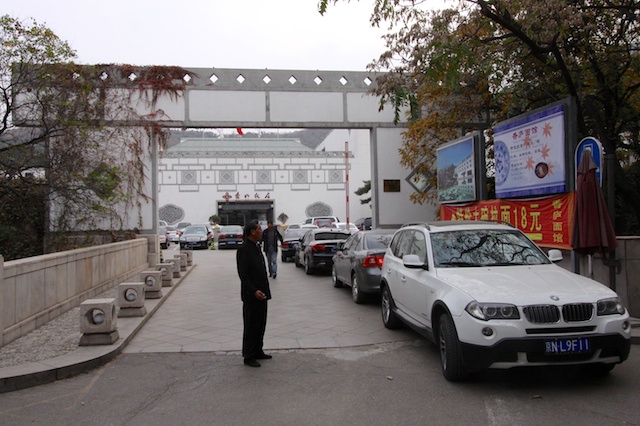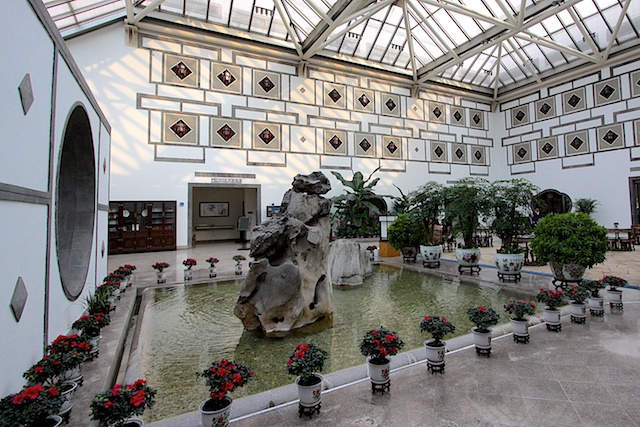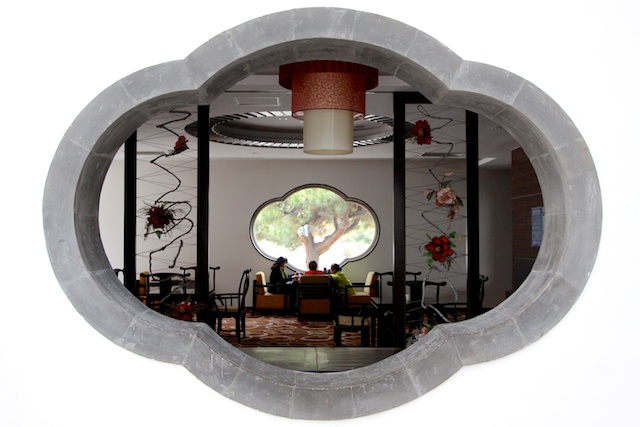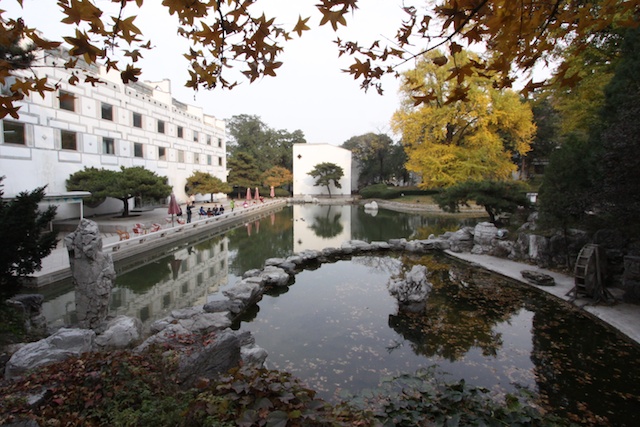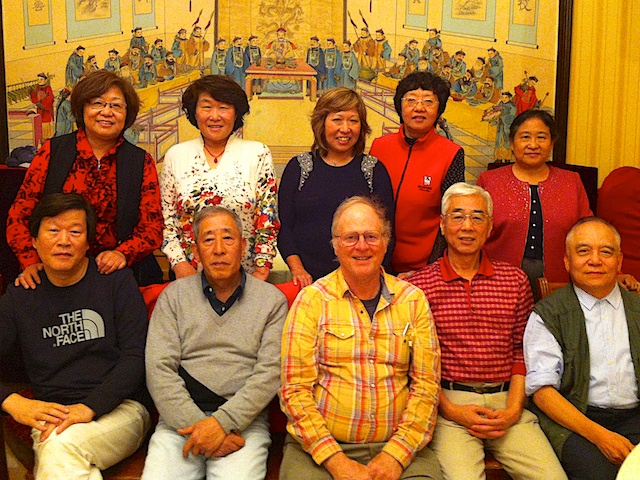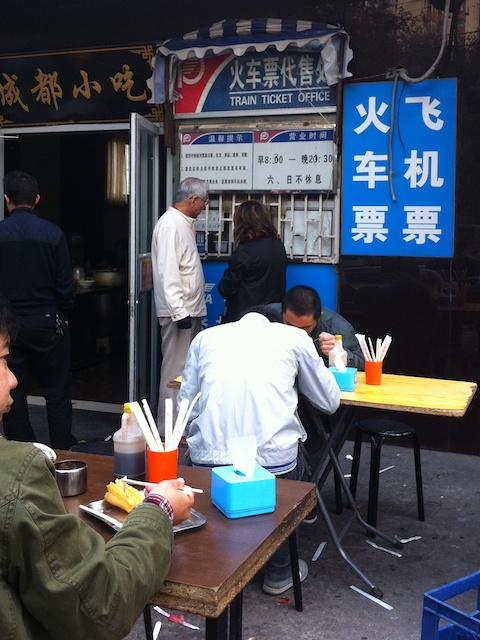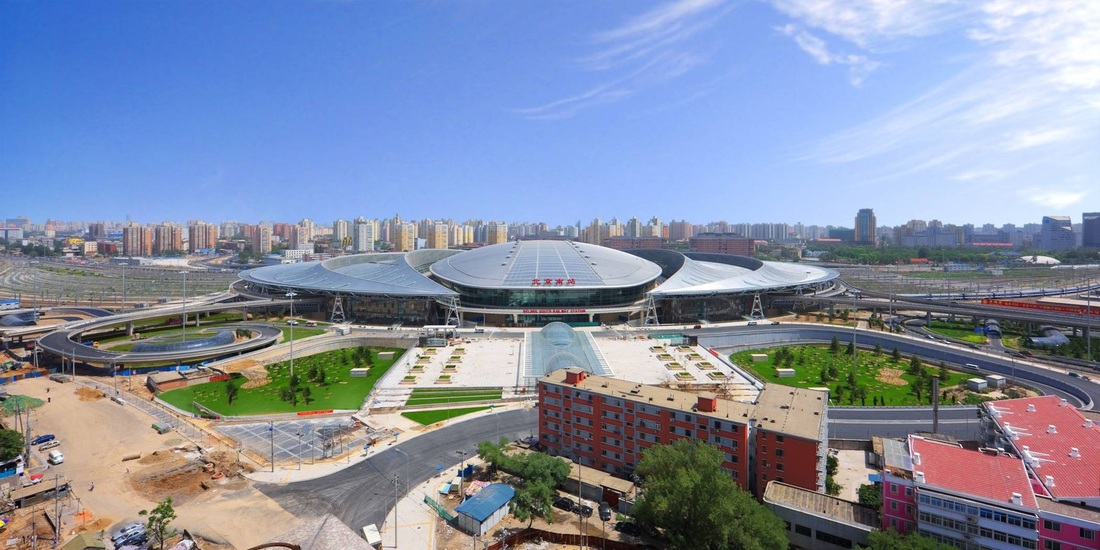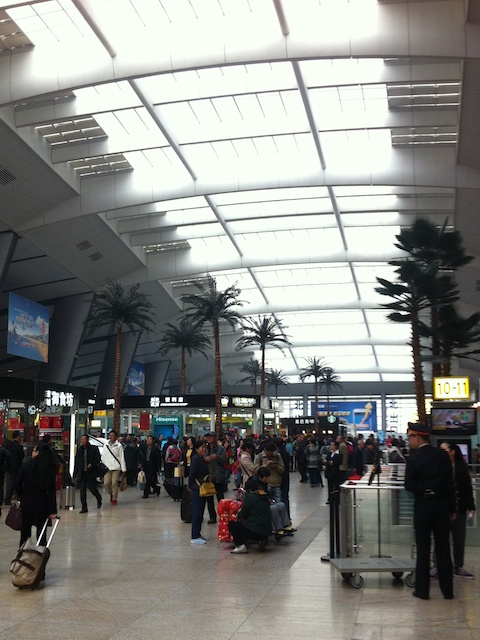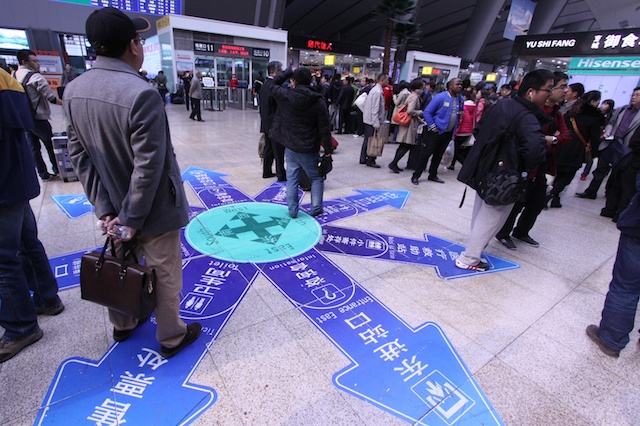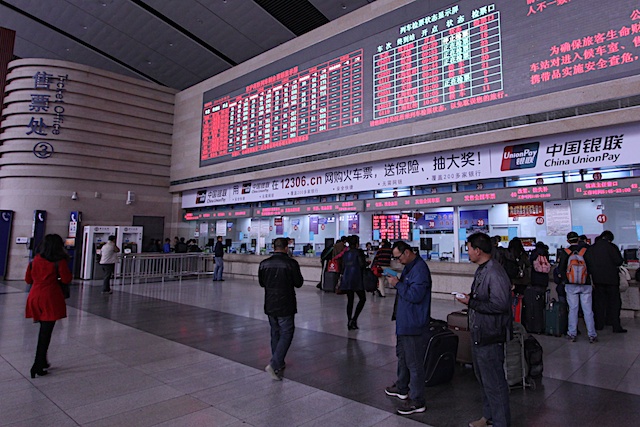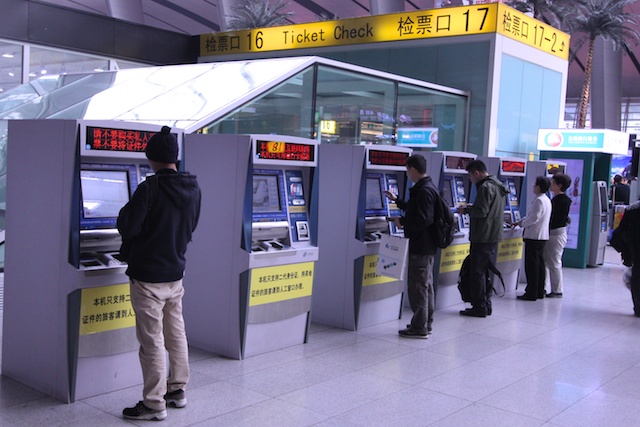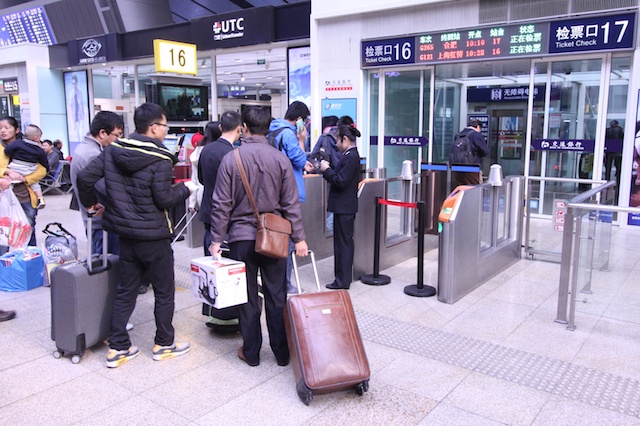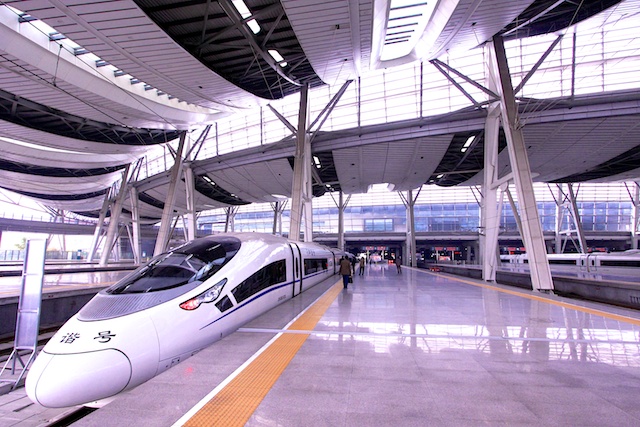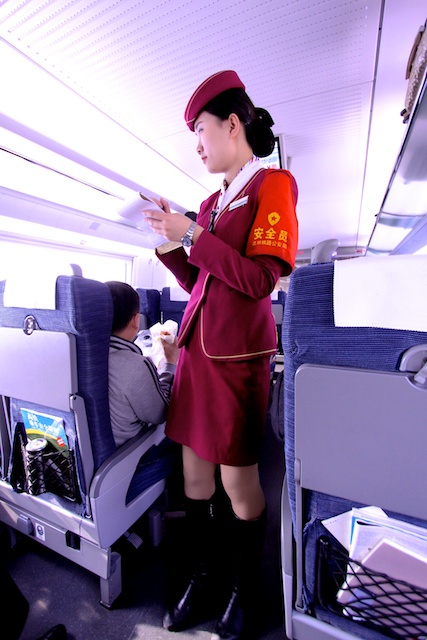Zhufeng and I flew to Beijing on October 25, 2014
The first morning we went to the family home, DaChaYe Hutong ("Big Tea Leaf Alley") #34 in the BaiTaSi ("White Stupa Temple") area of central Beijing. When we lived there in 1995 the only temple buildings were the Stupa and a small office, through an entry down a side alley near the Stupa. Since then the area from the Stupa to the main street has been cleared of haphazard infill structures, and new temple buildings, based on the originals, have been built, along with a proper entry complete with automatic ticket machine and traffic barrier. And it gets a morning sweep.
Down the side alley, there was evidence that the neighborhood is not going to be replaced with high rise apartments: a fixed up entry, new electrical service....
...and inside a combination of contemporary and traditional design elements. In 1996 I saw a City Zoning Map which showed the neighborhood around the temple as a "Historic Preservation Zone", and surmised it may be the reason why our house has so far survived the wrecking hammers. Maybe so....
...because for sure the old neighborhood survives. We lined up for traditional Beijing street-food breakfast goodies...
...and sat at one of the tables. Note Zhufeng and sister Zhuxian are eating the dumpling soup from a couple pots which they had brought from home: no throw-away containers at these shops...one brings your own.
When we lived in the house on the left, it was not the site of a morning market...is is now.
Although we did out best to store away items we wanted. if we returned to live here, so others could use the room. it remained just that...a storeroom. And a time warp: the calendar on the armoire is stuck at July 1996, the month we left for USA.
I may be a slow learner, but it is dawning on me we are not returning to Beijing to live, so I pushed Zhufeng to go through our stuff and bring back what we wanted and dispose of the rest. Out of the room into the courtyard and into different piles it went.
It was handy to have the neighborhood trash-cum-recycle man's yard across the street... another bag of old books, papers, school notes, etc. gets the old heave-ho. Note the apartment building beyond. Our house is in the NW corner of the Historic Zone, and most of the areas outside of it have been cleared and replaced with such developments. Compared to the 22 story monoliths that were being built in the 1980's and '90's, there has been vast improvement in building designs.
Of course it was not all work and no play. It was maple leaf time, so the Botanical Garden on the Fragrent Hills were drawing visitors.
Many visitors....a school outing was receiving instructions outside the Botancial Gardens Tropical Conservatory (built in 2000), before ....
...being let loose on a treasure hunt.
Way-finding and information signage has vastly improved all over Beijing. An example of which introduces ...
...this Glazed Arch (1783) at the entry to the WoFoSi ("Recumbent Buddha Temple"), a temple complex which obviously preceded the Botanical Garden which surrounds it.
A money raising activity: sell a fish, or little turtle ....
...for the buyer to place in a temple pond, for karmic merit, or good luck, depending on your beliefs.
They might wish to consider netting the fish and reselling them... of would such luck or merit thereby be cancelled?
This gate is not quite so decorative as the Temple's, but it is iconic in its own right. I.M. Pei's Fragrant Hills Hotel (1982) was one of the first buildings designed by Americans after the opening of China in 1979.
It suffered from lack of maintenance soon after construction, but, with the vastly improved economic situation, the building is in good condition now.
Traditional Chinese building design often uses "leak windows", small openings which both reveal and hide the space on the other side. Here Pei used two similar windows, one in an interior wall giving a glimpse of the cafe beyond, and the other in the exterior wall, of the garden beyond. But a pine tree was intentionally planted to further the concept of reaveal and hide.
So you have to go out to see it all: the garden, the hotel, and the pine tree in front of the "leak window".
Of course the family was glad to see us...and many gathered at a Peking Duck restaurant for, duck and traditional photo in front of this painting. In the back row are Zhufeng and four of her five sisters. In front of each are the brothers-in-law.
Visiting family is enjoyable, but a little site-seeing is as well, so a week going south of Beijing along the route of the former Grand Canal was planned. Step one was train tickets, which many years ago meant a trip to a train station days before departure and long queues in crowded places. Things have changed.
Visiting family is enjoyable, but a little site-seeing is as well, so a week going south of Beijing along the route of the former Grand Canal was planned. Step one was train tickets, which many years ago meant a trip to a train station days before departure and long queues in crowded places. Things have changed.
Out on the main street near our lodging, next to a small restaurant, was an even smaller Train Ticket Office (the sign also says they sell air ticketsl). We inquired of the next fast train, and got seats on one leaving in an hour and half!
Off to Beijing South Station we flew....not literally tho if we did we would have seen this view. It opened in 2008 in time for the Olympics, but took a couple years to get up to speed. It has 28 platforms with...
arrivals below and departures above. Although the ceiling is dotted with general illumination lights (and you can bet they are LED's) not one was on, as daylighting from the skylight was sufficient. Oh, yes, of course, the other side of the roof has over 3,000 solar panels.
Way-finding signage in both Chinese and English here too.
No long queues for tickets here or....
...at the DIY ticket machines...
...or at the wicket, where departures are an amazingly (compared to the past) orderly events.
Descending to platforms (there are 24 of them) the sleek high-speed units await, then quietly depart: on time, without an alarm, bell, whistle or announcement heard.
Settled into seats, the conductor checks passengers tickets and answers questions. Yes, Virginia there have been some changes in China.
